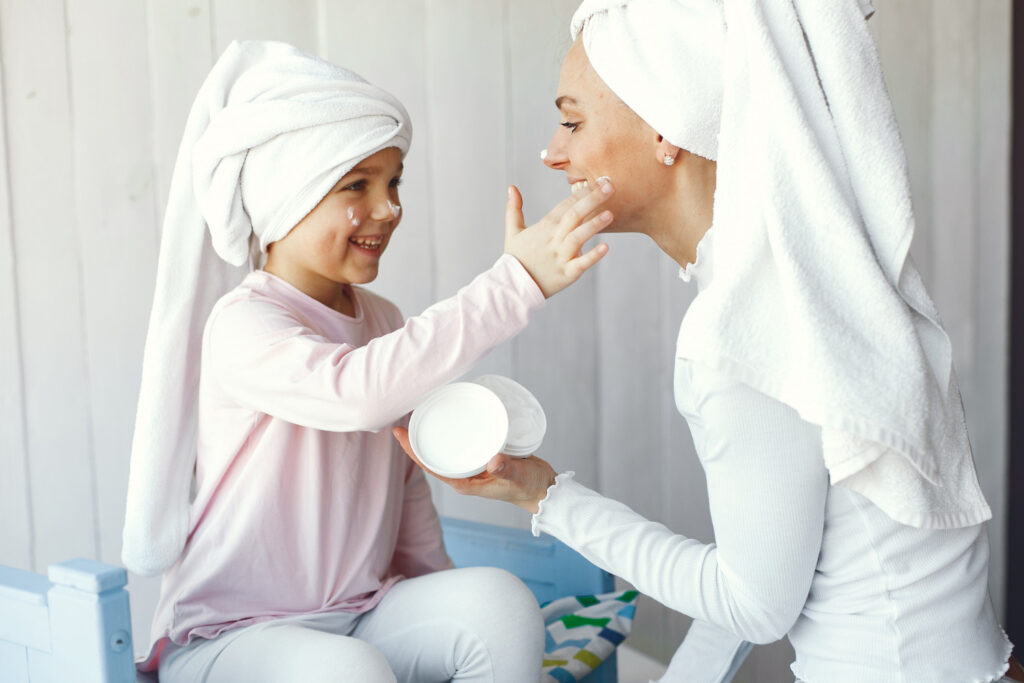Comparing Intense Moisturizing Face Creams: Which one is right for you?

The key to glowing skin is adequate hydration and nutrients. No matter your skin type or problems, well-moisturized skin will always glow with a young appearance. And the best way to guarantee that is to use the right moisturiser every day. Most people’s dry skin may be readily treated by changing their moisturising habits. But with so many product options, how do you even begin? And if you’re curious about how to choose one that’s perfect for you and your skin type, continue reading to learn more.
Why Use a Moisturiser?
Your skin is kept moisturised and healthy with moisturiser, which serves as a barrier of protection. While it’s often unclear whether moisturiser is even necessary, most professionals advise using it every day.
How can you choose which moisturiser is best for you?
To make sure you’re using the proper products for your face, it’s important to understand your skin type. A water-based solution is probably not going to be helpful for very dry skin; instead, dry skin will benefit from heavier moisturisers that can absorb as much moisture as possible.
What sort of skin do you have?
Dry skin (will benefit from an oil-based, thicker moisturiser)
Oily skin (will gain by using lighter, water-based moisturisers)
Mature people (will benefit from using oil-based moisturisers to keep moisture in)
Sensitive skin (will benefit from calming elements that won’t be harsh on the skin, like aloe)
A lighter, water-based moisturiser will be beneficial for normal or combination skin.
Normal skin
Most young individuals only need lotion if they have normal skin and are suffering from seasonal dryness. Age, however, causes the skin to store less moisture and require more support. So they ought to apply a moisturiser that is based on cream.
Dry skin
Skip the lotion and opt for something heavier and more potent if your skin is already dry and winter is making it worse. Creams will keep more water than lotion and offer more moisture to the skin.
Oily skin
For some people, using too much moisturiser can clog pores, which can result in acne. Acne can also cause hyperpigmentation and discolouration in those with dark skin tones. Take into account omitting the moisturiser or using a gel, which is lighter than other forms.
Combination of dry and oily skin
Combination skin refers to skin that is oily in some areas and dry in others. This condition is most common in the “T-zone,” which is the T-shaped region of your face that comprises your forehead, nose, and chin. These individuals have to stay away from the oily parts and moisturise the dry ones.
Sensitive skin
A gentle, barrier-repairing moisturiser with calming and skin-loving components like aloe vera might work best for you if you have sensitive skin that is also acne-prone or dry. Products that contain harsh ingredients, chemicals, artificial fragrances, or dyes must be avoided. Always use non-pore-clogging, hypoallergenic, and soft-on-the-skin moisturisers.
Paraben
Cosmetics have a longer shelf life when preserved with parabens. Based on worries that parabens mimic oestrogen, which might therefore cause cancer, they have been investigated for their possible health effects. Although parabens have been demonstrated to have significantly less estrogenic activity than the body’s naturally occurring oestrogen, they can behave similarly to oestrogen. In small amounts, parabens are thought to be safe.
Phthalates
The presence of phthalates in a broad range of items, including food packaging, scents, lotions, and deodorants, has sparked worries about potential health hazards, such as reduced fertility. The American Chemistry Council states that evidence suggests that rats are more susceptible to the cancer-causing effects of phthalates than humans are.
Polyethylene glycols (PEGs)
As surfactants, cleaning agents, emulsifiers, skin conditioners, and humectants, polyethylene glycols and their derivatives are widely used in cosmetics. PEGs have the potential to aggravate hypersensitive responses including skin rashes. Polyethylene glycols may have impurities. They improve penetration. They also cause problems if applied to skin that has been damaged.
How is a moisturiser used?
A moisturiser should always be used after washing your face, since it keeps the skin from drying up. This indicates that you should moisturise both in the morning and at night after cleansing your face. A moisturiser also works better since it locks in moisture when applied to slightly damp skin.
What distinguishes natural moisturisers from other types?
When applied topically, natural substances found in your kitchen and natural moisturisers help keep your skin moisturised and nourished. Honey, coconut oil, aloe vera, olive oil, shea butter, almond, and argan oil are a few of these substances.
Regarding other moisturisers that are on the market, they come in formulations made to address various skin concerns and types. They may contain a combination of organic and vegan ingredients, but they may also contain a number of chemically derived ingredients that will benefit your skin without doing it any harm.
Science Of Skin Intense Moisturizing Face Cream is enriched with hyaluronic acid and natural oils for deep hydration. With its ability to help the skin stretch and flex, hyaluronic acid reduces wrinkles and creases. Furthermore, studies have shown that hyaluronic acid helps wounds heal faster and leaves fewer scars.
The moisturising cream’s main active ingredients include olive oil, wheat germ oil, and aloe vera. These are helpful in softening and moisturising facial skin. They quickly absorb, do not leave the skin oily, and provide long-lasting hydration. They nourish the skin and give it a glow.
If you want to avoid the allergens in artificial smells, this fragrance-free moisturiser from Science Of Skin is a perfect choice. Thanks to calming ingredients like hyaluronic acid and ceramides, which have been shown to help balance your microbiome and may help lessen skin problems like dryness, acne, and wrinkles, this product can help your skin stay smooth and supple. This moisturizing face cream is PEG free, phthalates free and paraben free. All skin types are said to be safe for the product, which is also dermatologically approved.
